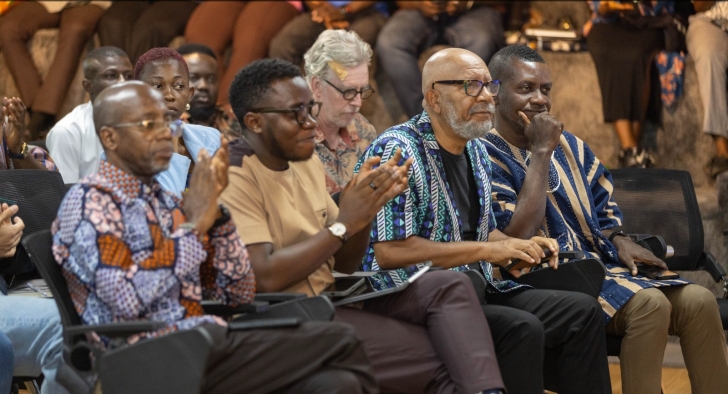ALX Ghana has reaffirmed its commitment to bridging the digital literacy gap in the country, unveiling an ambitious plan to equip 150,000 young people, including those in rural communities, with 21st-century digital skills this year.
This pledge was made by ALX Ghana’s Country Manager, Nana Darko Asiedu, during the Youth and Tech Dialogue (YTD)—a high-impact event that brought together industry leaders, educators, and young innovators under the theme “Unlocking Youth Potential for Ghana’s Digital Transformation.”
“As ALX, we believe that digital skills should be acquired at an early age. This year, we plan to train about 150,000 youth, with a special focus on high school graduates and rural communities,” Asiedu stated.
Highlighting the significance of YTD, Asiedu explained that the event was designed to unite key players within Ghana’s technology ecosystem and showcase its impact on youth development. He noted that several industry players had been working in isolation, and the Youth and Tech Dialogue serves as a platform to bring them together, highlight the power of technology, and demonstrate how it is positively transforming the lives of Ghanaian youth. He added that since ALX hosts YTD, the event also provides an opportunity to showcase the talents within ALX by featuring them as panellists and roundtable discussion participants to drive crucial industry conversations.
When asked about the prospects of transitioning Ghanaian youth from digital consumers to creators and employers, Asiedu expressed optimism, saying that Ghana’s digital market is poised for significant growth. He explained that based on the progress observed over the past five years, the digital ecosystem is expected to scale up rapidly.
President of Academic City University College, Professor Fred McBagonluri, urged Ghanaian youth to take an active role in the country’s digital transformation by becoming creators rather than mere consumers. He stressed that as the world moves rapidly towards a digital future, Ghana’s youth cannot afford to be left behind as passive users of technology.
Delivering the keynote address, Professor McBagonluri highlighted the crucial role of young people in shaping Ghana’s digital revolution. He asserted that the nation’s greatest asset is no longer gold, cocoa, or oil but the energy, creativity, and talent of its youth. With over 60% of Ghana’s population under the age of 25, he described this demographic as a goldmine of potential for the country’s digital transformation.
While acknowledging the critical role of the youth in driving digital innovation, he stressed the need for capacity building and adequate support to empower them. He called for intentional efforts, including the integration of coding into the basic education curriculum, expansion of access to tech hubs and online learning, and strategic partnerships with global technology companies to provide certifications and hands-on training. He also emphasised the importance of prioritising affordable internet access and enhancing digital infrastructure in schools and communities.
Professor McBagonluri urged relevant stakeholders to incorporate digital transformation strategies into Ghana’s national development plan to unlock the full potential of young people. He argued that building a transformative digital revolution is not just the responsibility of the youth but a national mission that must be embedded in Ghana’s development framework with clear milestones and evaluation metrics. He called on the government to take the lead, supported by private sector players and educational institutions.
A key highlight of the event was a panel discussion on the topic “Tech Forward – Building a Collaborative Youth and Tech Ecosystem.” The panel featured Dr. Vandyck Lomotey, Country Director for Generations Ghana; Constance Swaniker, Founder and President of the Design Technology Institute; and Esinam Adorkor, Programme Partner for Digital Economy at the Mastercard Foundation, with Marie-Noelle Nwakolo as the moderator.
Discussions centred on the role of collaboration in digital transformation, strategies for bridging the skills gap in technology, and opportunities for young innovators and entrepreneurs. The experts shared insights on how young Ghanaians can leverage emerging technological opportunities to build sustainable careers and businesses.
Organised by ALX, the Youth and Tech Dialogue is set to become an annual event aimed at fostering greater youth participation in Ghana’s digital transformation journey.

